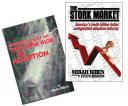Some New Adoption Links
So I’ve been sort off the adoption headlines lately and more about searching for helpful resources for adoptees. If you haven’t already checked out the adoptee blogs I have listed on the side please do. Many of these adoptees have a lot of great things to say. But as far as the issues go, don’t worry I’ll be back with more posts than you can handle.
 Recently I was reminded of an adoptee I met at a book discussion and an event that Boston Korean Adoptees Inc (an organization I am involved with) sponsored. It was a book talk from contributers to Outsiders Within, which if you haven’t read, please do (The easiest way to check it out is by checking out Jane Jeong Trenka’s Blog listed on the side at Language of Blood. But in any event you should check out Anh Dao Kolbe. An incredible photographer and all around great person. I had the pleasure of meeting her and seeing some of her work. You can check out her photography website at ADK Photography
Recently I was reminded of an adoptee I met at a book discussion and an event that Boston Korean Adoptees Inc (an organization I am involved with) sponsored. It was a book talk from contributers to Outsiders Within, which if you haven’t read, please do (The easiest way to check it out is by checking out Jane Jeong Trenka’s Blog listed on the side at Language of Blood. But in any event you should check out Anh Dao Kolbe. An incredible photographer and all around great person. I had the pleasure of meeting her and seeing some of her work. You can check out her photography website at ADK Photography
 Next I stumbled upon a new book on transracial adoption. It’s called The Stork Market. Here’s an excerpt about the book that I found on their website. I haven’t read the book myself so any comments from people who may have read it are warmly welcomed. For more information please check out their website Advocate Publications.
Next I stumbled upon a new book on transracial adoption. It’s called The Stork Market. Here’s an excerpt about the book that I found on their website. I haven’t read the book myself so any comments from people who may have read it are warmly welcomed. For more information please check out their website Advocate Publications.
——————————————————————————————-
THE STORK MARKET is FOR:
Anyone personally touched by adoption, or who knows someone who is
Anyone planning or considering adoption in their lives, or the lives of a love done
Social workers, attorneys, adoption facilitators and anyone working in the field of adoption
Teachers, psychologists, therapists, counselors who come in contact with adoptees, adoptive mothers and mothers who have relinquished for adoption
The general public, tax payers
Anyone interested in child protection and family preservation
The Stork Market is an in-depth examination of the corruption in the adoption industry: the fine line between black and gray market adoption; scams, coercion and exploitation in a market based on supply and demand with prices based on quality (i.e. age, skin color) of the merchandise and set as high as ‘desperate’ consumers are willing to pay.
The Stork Market exposes international trafficking where children are a commodity bought and sold to the highest bidders, including pedophiles.
The Stork Market is extensively researched, documented and including interviews with the top adoption experts. The Stork Market asks if adoption can be fixed – the money aspect removed and government controls and regulations put in place – or abolished in favor of permanent guardianship, or informal adoption that does not involve the issuance of a falsified birth certificate present in current adoption to fortify myths of replicating creation.
The Stork Market foreword is by Evelyn Robinson, from Australia, who brings with her an International perspective.
The Stork Market goes further and is more current than Riben’s groundbreaking, award-winning expose of the adoption industry, “shedding light on…The Dark Side of Adoption” (1988) which was excerpted in Social Issues Review Series, Utne Reader and Microcosm USA. The Stork Market reveals, for the first time in print, Riben’s role in the notorious Joel Steinberg murder case.
————————————————————————
And now, on a more somber note I want to talk about the Twice Lost, Never Forgotten Adoption Kinship Memorial Wall.
“a place to memorialize and remember those separated in by adoption, who have left this earthly life.”
It’s a hard issue to grapple with and it may be hard for you to look at this site (I know it was for me). But I think it is publicizing a side of adoption that is not necessarily out there, or that is discussed (even within adoptee circles). It’s not the most uplifting topic, but does shine light on not only the tragedies of adoption, but also the experience that many transracial Korean adoptees share when they learn that a member of their birth family is no longer alive. I’ve heard these stories from adoptees, and it’s a hard issue to cope with.
How does one cope with learning for the first time of a birth parent’s existence while also mourning their passing?
